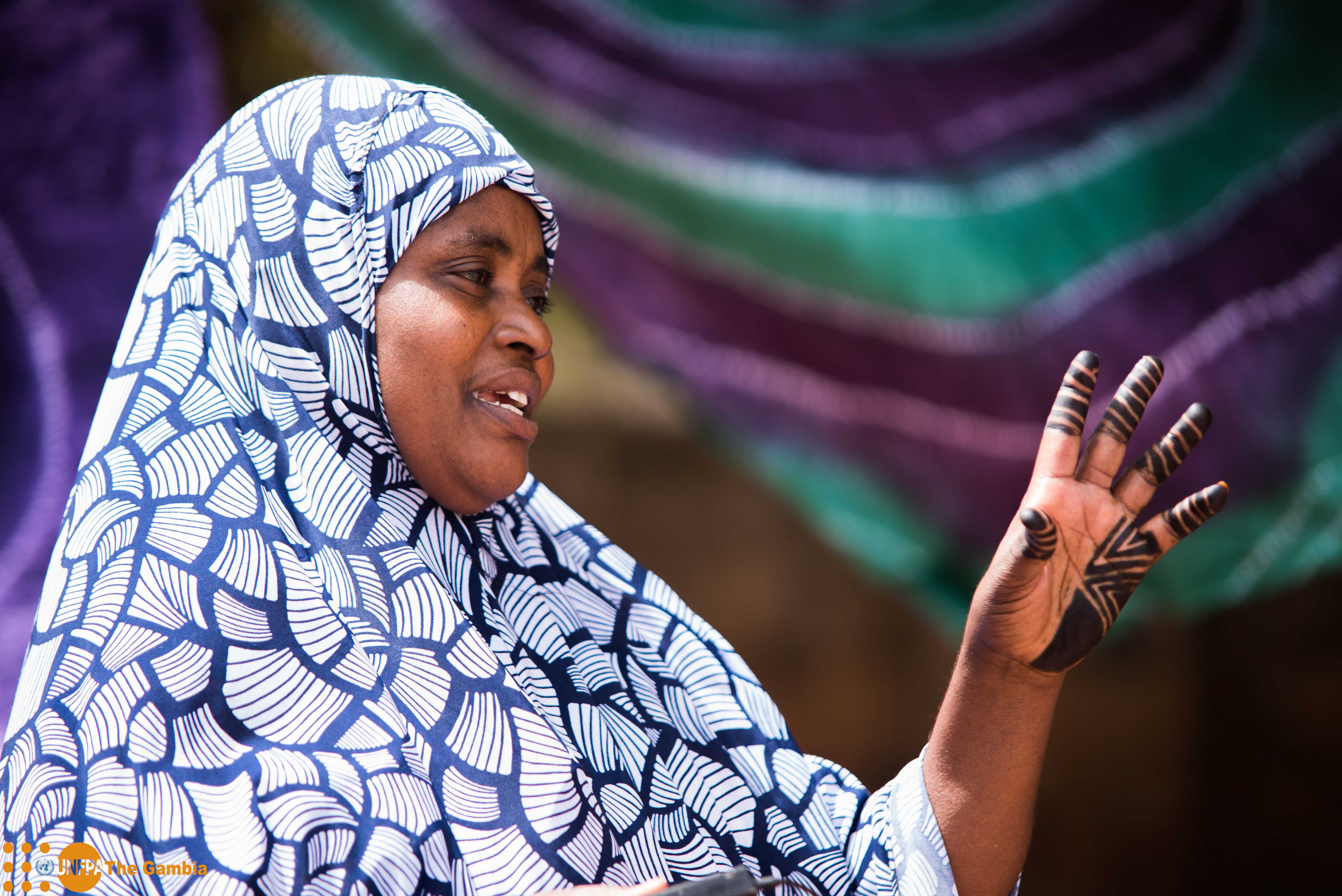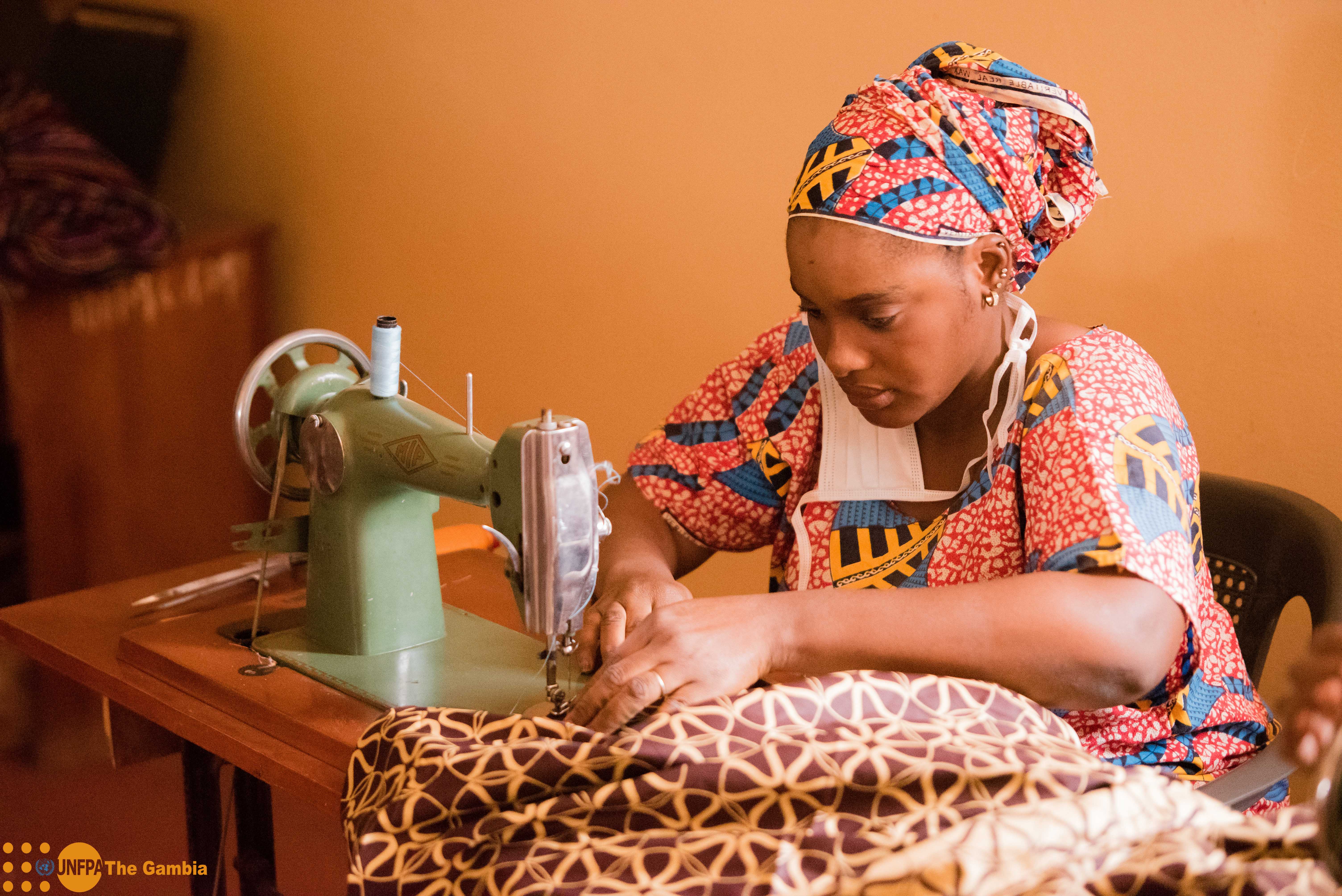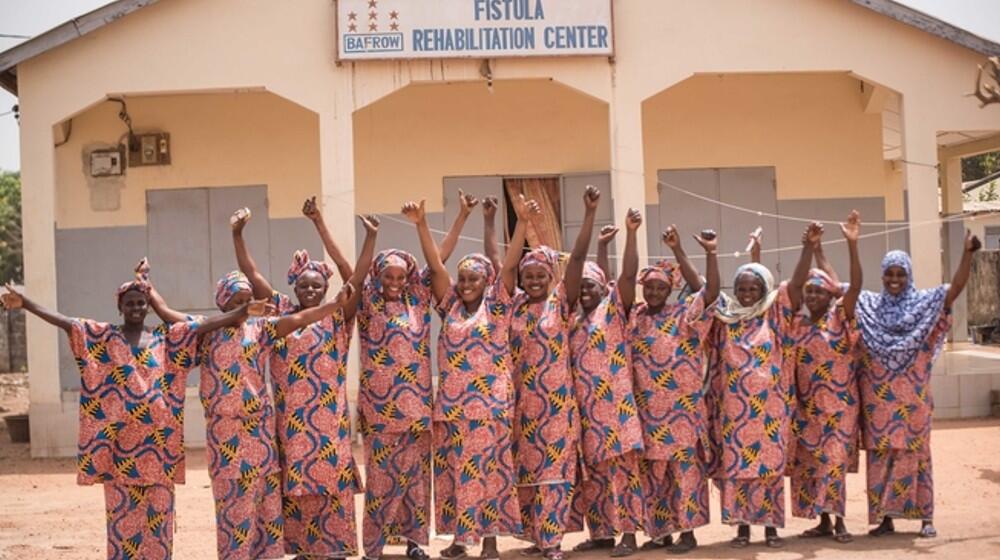Surviving a 90-day journey of healing, excitement for a possible transformation of their lives, hope for restored dignity and on the other hand, fear of a failed surgery, was the story of the women who underwent fistula repair surgeries organised by the Bafrow Medical Centre, with support from UNFPA The Gambia.
Secluded from community life, living through constant loneliness and the pain of being unable to afford treatment for their condition for many years, these women have fought the hard fight of living with a condition often regarded as ‘embarrassing’ and ‘unmanageable’. They lived through the struggle of an injury they never saw coming and one they were often blamed for, but they have made it to the other side where they once were – happy, full of life, active and recognised as valuable members of their communities.
On our first visit to the BAFROW Fistula Rehabilitation Centre in Mandinaba, approximately 19 kilometers from The Gambia’s capital city, Banjul, we had an opportunity to interact with the patients who were being prepared for theater. In our conversations, they were positive that the surgeries will be successful because of the quality of care and the level of their interaction with the staff. Although aware that not all fistula surgeries come out successful and that they would have to wait for 3 months (90 days) to find out their fate, the women expressed delight in the opportunity to have a second chance at getting back their health and dignity. This alone for them, was enough reason to be happy and positive.
There worries were numerous before they got registered to undergo surgery. Their fears were evident and their hope to survive was very minimal. “I really thought I would never be cured. So I was always indoors.” “I have seen many women like myself die as a result of this condition in my village. I always thought I was going to end up like them – dead.” These were the words of two of the women we spoke to after final confirmation of their successful surgeries.

For us at UNFPA, these very difficult traumatic experiences of women living with Obstetric Fistula in The Gambia, are the reason we continue to invest in strengthening The Gambia’s health system and working towards ending all preventable maternal deaths in the country. Reaffirming this commitment, the Country Office as part of its 2017 – 2021 Country Programme, intends to support at least 150 fistula repair surgeries in The Gambia.
Working with BAFROW and the Edward Francis Small Teaching Hospital, UNFPA The Gambia has now supported 19 repair surgeries. However, it must be emphasised that, our target is not just to privide surgeries, but to accompany these women through their journey of healing and this for us means restoring their hopes in life, equipping them with skills to help them earn a living to be economically independent, and reintegrating them back into their communities. Each of the women will go back home stronger, with skills in dye-dye, soap making, sewing, bread baking, among others, following a successful battle against Fistula.

Underdiagnosed in The Gambia and subjecting women to life-long silence, exclusion and ill-health, Obstetric Fistula is a childbirth injury caused by prolonged, obstructed labour without timely intervention, typically, a Caesarean section. During unassisted prolonged labour, the sustained pressure of the baby’s head on the mother’s pelvic bone, damages her soft tissues, creating a hole—or fistula—between the vagina and the bladder and/or rectum. The result of the condition, is a constant leaking of urine and/or faeces through the vagina. Fistula is most common in poor communities in sub-Saharan Africa and Asia where access to obstetric care is limited. About two million women remain untreated in developing countries and between 50,000 and 100,000 new cases occur each year. Without treatment, fistula often leads to social, physical, emotional and economic decline and thus requires partnership among stakeholders to eradicate in The Gambia.
UNFPA is committed to working towards ensuring that, all women in The Gambia live happy, dignified and Fistula-free lives. This is the journey we are on and we will leave no one behind!



